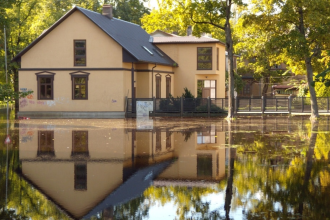Maintaining a comfortable environment in your home relies heavily on an efficient heating, ventilation, and air conditioning (HVAC) system. Issues can arise over time, leading to decreased performance and discomfort. Identifying the reasons why your HVAC system may not be functioning properly is crucial for both your comfort and the longevity of the system. This article explores common issues that can cause HVAC systems to falter and offers insights into potential solutions.

Improper Maintenance
Perhaps the most significant factor affecting the performance of your HVAC system is improper maintenance. Regular servicing is crucial for ensuring that all components are in peak condition. Filters should be replaced or cleaned every month or according to the manufacturer’s guidelines.
Dirty filters restrict airflow and can lead to ice formation on the evaporator coils, reducing cooling efficiency. The system’s coils must be cleaned periodically to prevent dirt buildup that compromises performance. Professional HVAC contractors can manage these maintenance tasks effectively, ensuring efficiency is maintained. Neglecting maintenance leads to lower performance and can result in costly repairs down the line.
Insufficient Insulation
Another common reason for HVAC inefficiency stems from insufficient insulation in your home. Insulation is designed to maintain indoor temperatures by preventing warm or cool air from escaping. Without adequate insulation, your HVAC system is forced to work harder to maintain the desired temperature, resulting in increased energy consumption and wear and tear on the system.
Homes with poor insulation often have noticeable temperature fluctuations, which can lead to discomfort. Properly insulating your home helps your HVAC system function more effectively and lowers your energy bills significantly. Utilizing professional services to assess the insulation in your home can provide valuable insights into potential improvements.
Thermostat Issues
Thermostats serve as the control center for your HVAC system, and any malfunction can lead to significant heating or cooling issues. If the thermostat is improperly calibrated, it may not trigger the HVAC system to engage or disengage at the correct times, leading to persistent temperature inconsistencies. Sometimes, outdated thermostats can contribute to inefficiencies, as they often lack the precision and features of modern smart thermostats.
Upgrading to a more advanced model can provide better control and energy savings. Once again, consulting with professionals can help homeowners choose the right thermostat to complement their systems, leading to a more consistent and efficient environment.
Leaky Ducts
Leaky ducts are another common issue that can drastically reduce the effectiveness of your HVAC system. When ducts have gaps or holes, the conditioned air can escape before it reaches its intended destination, leading to uneven heating or cooling in different areas of your home.
This creates uncomfortable temperature variations and leads to wasted energy and increased utility bills. Regular inspections can help identify leaks, and sealing these ducts can enhance the overall efficiency of your system. Homeowners should consider duct sealing as a priority for improving their HVAC performance and lowering energy costs.
Inappropriate System Size
Having an HVAC system that is ill-suited for the size of your home can lead to various operational issues. If an HVAC unit is too small, it will struggle to meet the temperature demands of the space, while an oversized unit may cycle on and off too frequently, causing wear on the system and inefficiencies.
Conducting a load calculation can help determine the appropriate size for your HVAC needs. This calculation considers various factors, including square footage, insulation levels, and window sizes.
Obstructed Airflow
Obstructions in airflow can severely hinder an HVAC system’s performance. This can occur due to furniture blocking vents or if vents themselves are dirty or damaged. Good airflow is essential for the efficient operation of the system, as it ensures that fresh air circulates through your home. Homeowners should regularly check that vents are clear and unobstructed.
Regular maintenance can help identify issues before they escalate, allowing for smoother operation and increased comfort. Prioritizing airflow maintenance can prevent larger issues from developing and contribute to an efficient home environment.
Age of the System
The age of your HVAC system plays a significant role in its performance. As systems age, components wear out, leading to decreased efficiency and higher energy consumption. Most HVAC systems are designed to last between 15 to 20 years; proper maintenance can prolong this lifespan.
If your system is reaching the end of its operational life, it may be time to consider an upgrade. Investing in newer, more efficient technology can yield better performance and lower energy costs over time. Understanding the lifespan of your HVAC system can aid in planning for necessary replacements only when needed.
When a HVAC system shows signs of failure, it can be frustrating and increase energy costs. By recognizing the common reasons affecting performance, homeowners can take proactive steps toward effective solutions.












